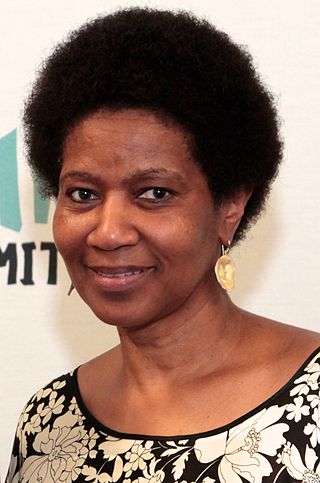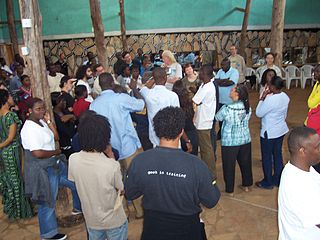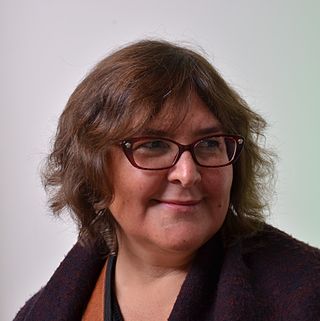History
In 1998, Women'sNet was established as a project of the Commission of Gender Equality and SANGONeT. In the following year, the first Women'sNet webpages went live, focusing on women and human rights issues in South Africa.
It also created the first online space for South African women to reflect on, and strategise, in the lead up to the 1999 national elections. In 1999 too, the African Sisters online workshop was held. Women'sNet collaborated with FEMNET to create an online platform for joining regional processes in the lead-up to the Beijing+5 conference.
2001 saw the creation of the first women-run internet cafe for civil society organisations at the [World Conference Against Racism, Xenophobia and related Intolerances], among other activities.
In 2000, Women'sNet launched a project to combine radio and audio production with women's NGOs efforts, to promote a women's empowerment agenda. It also won the Highway Africa ward for "Innovative Use of the New Media".
Other landmarks include SANGONeT Board's confirming Women'sNet's independent status (April 2002), its joining of the international ICT4D network the Association for Progressive Communications, being officially registered as a non-governmental organisation (January 2003), being a core partner in the first Africa-wide Women and Electronic Networking Training (WENT) in Cape Town (2003), launching an on-line up-datable database of South African organisations providing services targeted at girls (March 2003).
In 2004, it convened a stake-holders meet to consult South African women's NGOs on their information and technology needs; launched the GenderStats website, launching Girls'Net, hosting the first African workshop on free software (or FLOSS) and implementing the Recording Women's Voices project.
The Association for Progressive Communications (APC) is an international network of organizations that was founded in 1990 to provide communication infrastructure, including Internet-based applications, to groups and individuals who work for peace, human rights, protection of the environment, and sustainability. Pioneering the use of ICTs for civil society, especially in developing countries, APC were often the first providers of Internet in their member countries.

Phumzile Mlambo-Ngcuka is a South African politician and former United Nations official, who served as the Executive Director of UN Women with the rank of Under-Secretary-General of the United Nations.

The Fourth World Conference on Women: Action for Equality, Development and Peace was the name given for a conference convened by the United Nations during 4–15 September 1995 in Beijing, China.

Africa Source was a set of events, held in 2004 and 2006 in Namibia and Uganda respectively, to promote the use of Free/Libre and Open Source Software (FLOSS) among non-profit and non-governmental organisations. Africa Source was part of the wider "Source Camps" organised by Tactical Technology Collective (Tacticaltech.org) and its partners, and was also linked to the Asia Source and other parallel events held elsewhere.

Aliza Sherman, also known as Aliza Pilar Sherman, Aliza Sherman Risdahl, and Cybergrrl is a new media entrepreneur, author, blogger, women's issues activist, and international speaker. She is known for her expertise in online marketing and networking. Her primary focus includes addressing women's issues on the Internet, while empowering women to expand their role and involvement in progressive technology and the new media industry. In 1995, Sherman was named by Newsweek magazine as one of the "Top 50 People Who Matter Most on the Internet". She was one of only three women on the list. In 2009, she was named by Fast Company magazine as one of the "Most Influential Women in Technology", in the Blogger category. She is a native of Honolulu, Hawaii.

Women of Uganda Network (WOUGNET) also known as Women of Uganda Network Development Limited is Ugandan non-governmental organization that aids women and women's organisations in the use and access of information and communication technologies (ICTs) to share information and address issues their concerns such as gender norms, advocating for their rights and building communities and businesses through education.
BytesForAll is a South Asian initiative to focus on how information technology and the internet can help in taking up social development issues. It is one of the oldest ICT4D networks in South Asia. It was launched at a time when ICT4D was yet to become a buzz-word on the development circuit, and was still largely unnoticed for its potential.
WomensHub is a Philippines-based non-government organisation that supports "women struggling for self-determination" in using ICTs, or information and communication technologies.

Ungana-Afrika, Swahili for "connect africa", is a non-governmental organisation based in Pretoria, South Africa that provides a wide range of ICT services for civil society within and outside of the continent. It aims to better empower civil society organisations, networks and related stakeholders, in terms of ICT capacity and resources, so they may more efficiently achieve their unique social missions.
Fahamu is a not-for-profit organization supporting organizations and social movements championing progressive social change and human rights. With branches in the United Kingdom, South Africa, Senegal, and Kenya, Fahamu primarily engages with civil and human rights organizations through Pambazuka News, an online platform focusing on social justice. Additionally, they offer online courses on human rights and social justice and employ new technologies, including SMS, for information dissemination, lobbying, and interactions.
Research Action and Information Network for the Bodily Integrity of Women is an international non-governmental organisation working to eliminate female circumcision and female genital mutilation.
Nahid Toubia is a Sudanese surgeon and women's health rights activist, specializing in research into female genital mutilation.

Tactical Tech is an international nongovernmental organization that engages with citizens and civil-society organisations to explore and mitigate the impacts of technology on society. Since 2012, the organisation has been based in Berlin.

The Uganda Women's Network (UWONET) is a Ugandan non-governmental organization (NGO) working to advance public policy regarding women's rights. It is an umbrella organisation of national women's NGOs and individuals operating in East Africa. The executive director is Rita H. Aciro-Lakor.

Anriette Esterhuysen is a human rights defender and computer networking pioneer from South Africa. She has pioneered the use of Internet and Communications Technologies (ICTs) to promote social justice in South Africa and throughout the world, focusing on affordable Internet access. She was the Executive Director of the Association for Progressive Communications from 2000 until April 2017, when she became APC's Director of Policy and Strategy. In November 2019 United Nations Secretary-General António Guterres appointed Esterhuysen to Chair the Internet Governance Forum’s Multistakeholder Advisory Group.

Jennifer Radloff is a South African feminist activist and a pioneer on Information and communications technology (ICT) for social justice. She works for the Association for Progressive Communications (APC) in the Women's Rights Programme and is a board member of Women's Net.
Mandisa Monakali is a public speaker, educator, social worker, researcher, lobbyist, advocate, project manager, strategic planner, workshop and community organizer. She is the founder and Executive Director of Ilitha Labantu.

Chat Garcia Ramilo is a feminist activist. She has over twenty years experience in different activities with Information and communications technology (ICT). Since April 2017, she leads the Association for Progressive Communications (APC). She is the Board Chair of the Center for Migrant Advocacy in the Philippines and a Board Member of the Association for Women's Rights in Development (AWID).
Foreign aid for gender equality in Jordan includes programs funded by governments or non-governmental organizations (NGOs) that aim to empower women, close gender based gaps in opportunity and experience, and promote equal access to education, economic empowerment, and political representation in the Hashemite Kingdom of Jordan.










